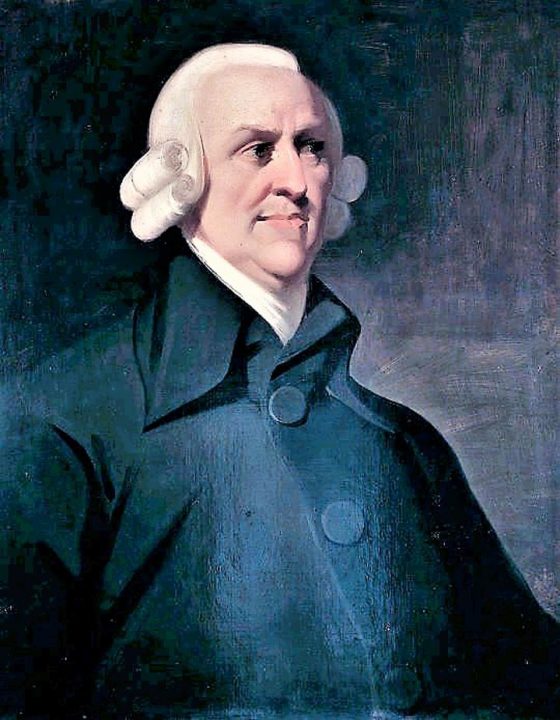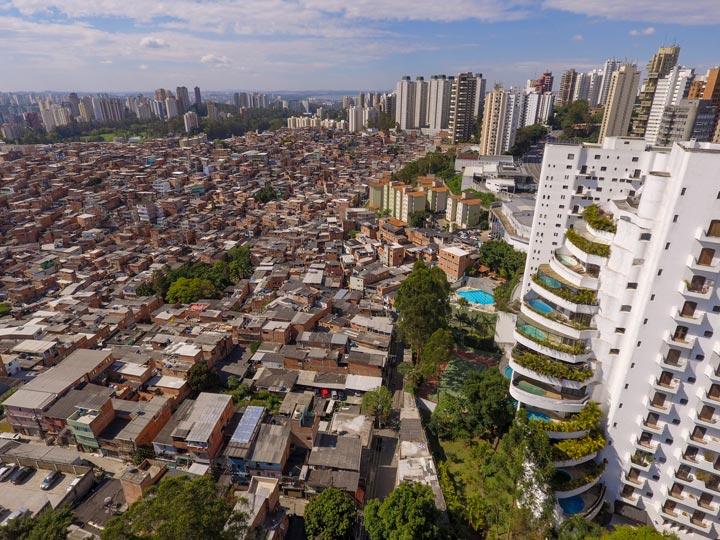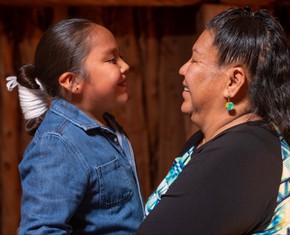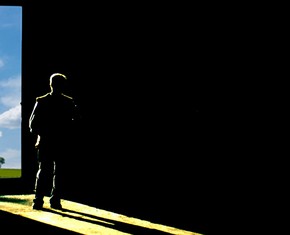The views expressed in our content reflect individual perspectives and do not represent the authoritative views of the Baha'i Faith.
The Baha’i teachings call for the elimination of the extreme disparities between rich and poor, and view those disparities as a great injustice and a major impediment to world peace.
Can a fresh infusion of spirituality solve that conundrum? Abdu’l-Baha wrote:
… you can observe, on the one hand, a single person who has amassed a fortune, made an entire country his personal dominion, acquired immense wealth, and secured an unceasing flow of gains and profits, and, on the other, a hundred thousand helpless souls—weak, powerless, and wanting even a mouthful of bread. There is neither equality here nor benevolence. Observe how, as a result, general peace and happiness have become so wanting, and the welfare of humanity so undermined, that the lives of a vast multitude have been rendered fruitless! For all the wealth, power, commerce, and industry are concentrated in the hands of a few individuals, while all others toil under the burden of endless hardships and difficulties, are bereft of advantages and benefits, and remain deprived of comfort and peace.
In response to this vital challenge of the growing economic disparity in the world, the Baha’i teachings suggest the enactment of laws and regulations to “moderate the excessive fortunes of the few and meet the basic needs of the myriad millions of the poor,” so “that a degree of moderation may be achieved.”
But laws and regulations alone cannot effectively address the problem—so the Baha’i writings also point to the need for a spiritual foundation for economic behavior as a necessary, foundational safeguard for the sustainability of those laws and regulations. According to Abdul-Baha, “The fundamentals of the whole economic condition are divine in nature and are associated with the world of the heart and spirit.”
Abdu’l-Baha’s references to the essentially moral and spiritual nature of economic conditions corresponds well with a future system of political economy. Political economy, as the forerunner of modern economic disciplines, emerged from moral philosophy and the concept that economics is essentially a normative field of study. The classical economists like Adam Smith and Thomas Malthus did not attempt to superimpose normative moral values on economic behavior.

Instead, they believed normative values form the essential property of any economic activity. They believed that moral agency as a restraining force would naturally curb the excesses of self-interest—but that has not happened.
The Baha’i teachings on the dynamic interaction of the economic and spiritual worlds lead us to believe that moral values have an independent universal existence, akin to that of mathematical truths. However, those values emerge in the context of socioeconomic processes. When people began to develop an exchange system, the mechanism of the market gradually evolved. Soon, however, people realized that any functional exchange system relies on honesty, trust, and reciprocity, which must be sustained so that social cohesion and economic viability can prevail.

In our shrinking world, this requires new levels of cooperation and unity. Abdu’l-Baha wrote:
As preordained by the Fountain-head of Creation, the temple of the world hath been fashioned after the image and likeness of the human body. By this is meant that even as the human body in this world, which is outwardly composed of different limbs and organs, is, in reality, a closely integrated, coherent entity, similarly the structure of the physical world is like unto a single being whose limbs and members are inseparably linked together. Were one to observe with an eye that discovereth the realities of all things, it would become clear co-operation, mutual aid and reciprocity are essential characteristics in the unified body of the world of being, inasmuch as all created things are closely related together, and each is influenced by the other or deriveth benefit therefrom, either directly or indirectly. Hence it was stated that co-operation and reciprocity are essential properties which are inherent in the unified system of the world of existence, and without which the entire creation would be reduced to nothingness. The more this interrelationship is strengthened and expanded, the more will human society advance in progress and prosperity. Indeed, without these vital ties, it would be wholly impossible for the world of humanity to attain true felicity and success.
The Baha’i worldview suggests that moral values can exert a significant influence on the market mechanism—not by separating them from the enterprise, but rather by viewing the enterprise itself as a moral discipline and practice. Behind this assertion is a broader concept based on the underlying unity of social processes and religious revelation.
Baha’is believe that the revelation of the Baha’i teachings provides economic transactions with meaning and direction, while economic transactions create a necessary matrix for the realization of the will of God on Earth. The merging of the two in the form of a moral order shapes the core of human civilization. Consequently, viewing economics as essentially a normative discipline is not considered an aberration, but rather a restoration of a historical point of view.
We know that the mechanism of self-interest, as reflected in economic markets, has been a part of the natural evolution of humanity. The Baha’i view, however, contends that the curve of self-interest has exhausted its dominant role in economic history, and is now losing its long-held ground in the face of the emerging realities of a new global civilization.
The Baha’i writings invite us to contemplate the course of human evolution and the manner by which human beings have moved beyond their instinctive impulses throughout history. This extraordinary metamorphosis compels us to reflect on some fundamental questions: What was the cause of moral transformation in the human species? What led to the refinement of human values? What factors have caused people to express unconditional love or demonstrate sacrificial behaviors for others?
The exchange economy is defined as an economy in which goods and services are traded for a return of equal value. Conversely, in sacrificial behaviors, one gives out of love without expecting anything in return. Sacrifice defies the fundamentals of material exchange, and gives plausibility to the idea that there might be independent moral and spiritual values above and beyond the mere measure of material benefits.
Throughout history, we have seen an incessant conflict between the dynamics of wealth creation and social justice. From a Baha’i perspective, the nature of this conflict, if carefully examined, reflects a historical process of trial and error meant to harmonize the economics of self-interest with an international political economy based on a system of universal ethics/law, global governance, and an equitable distribution of resources among all humanity.
















Comments
Sign in or create an account
Continue with Googleor